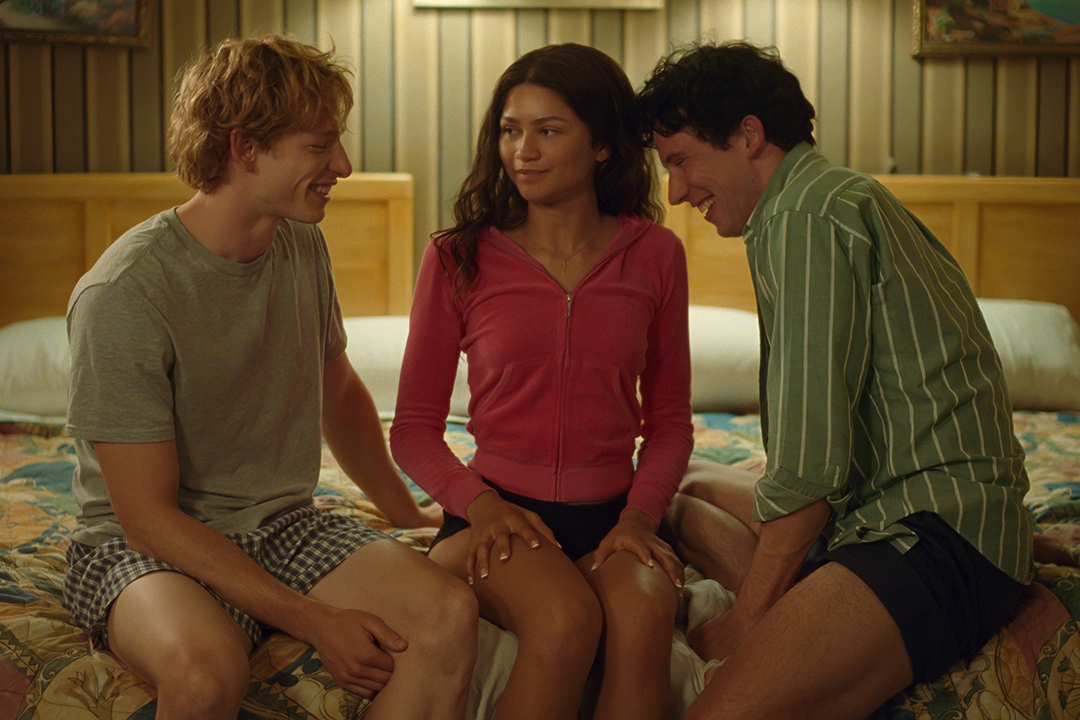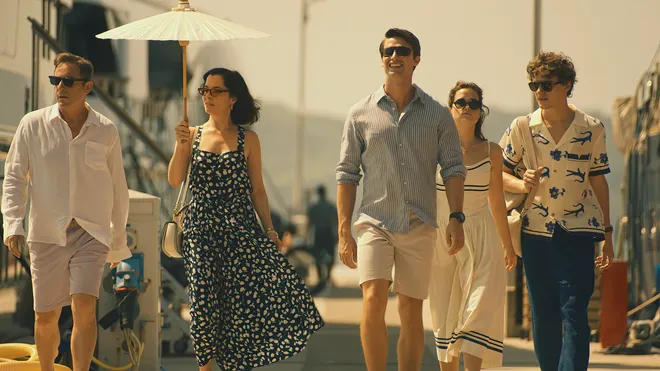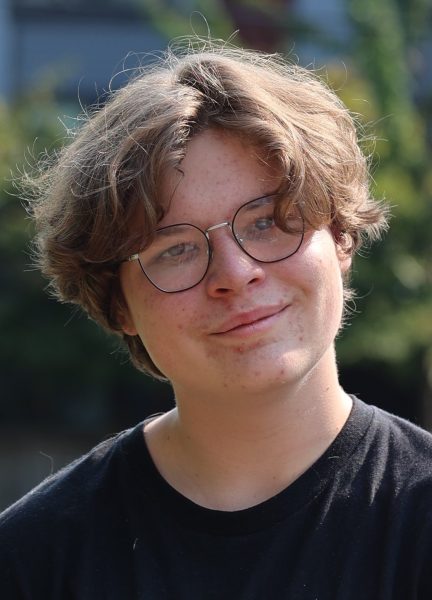There are two noises used in complete tandem throughout Luca Guadagnino’s “Challengers:” the sounds of tennis balls hitting rackets and the sound of the people hitting them.
Such is an intrinsic theme of the movie; that sensuality and sports are connected in a web of rallies and sweat.
Tashi Duncan (Zendaya) is an all star, teenage tennis player on her way to becoming one of the most prolific tennis players in the world. However, her future is challenged once she becomes involved with Art Donaldson (Mike Faist) and Patrick Zweig (Josh O’Connor), two mediocre tennis pals who are enamored by Tashi’s talent and beauty.
Thus propels them both in a sweaty, desperate love triangle with her; each of them aching to be her man while her intentions remain cloaked under her steely demeanor. It is all teenage angst and drama until one fateful day brings them into adulthood, when Tashi suffers a career ending injury.
Ten years later, Tashi is now Art’s wife and coach, propelling him through elite tennis circles and maneuvering him into a New York state tennis tournament, known as a Challengers tournament. There, Art meets Patrick, whose career has torpedoed into oblivion.
Almost a quarter of the movie is just the exhilarating, climatic tennis match between Art and Patrick in the present, while Guadagnino often sends his audience back and forth in time seamlessly like a tennis ball.
Guadagnino treats the entire movie like a tennis match, something that is never ending, abrupt and dazzling to watch, but he also forces his characters to care as much as he does. Almost every conversation is about sex or tennis, and these conversations feel like rallies of the senses.
Everyone is equipped with an arsenal of quips and comebacks that equally eviscerate and prolong the conversation, each character obsessed with intensity and emotion that comes with a tennis match. It’s even Tashi, in a climactic scene, who says that “tennis is a relationship,” something these tennis obsessed people often complicate because even the actual tennis scenes don’t feel like tennis.
Each person playing is sighing or grunting with each serve or volley, their faces covered in sweat, all of them having a silent conversation with each other that the audience can only hope to decipher.
While this could make the movie passably brilliant, it really only makes it entertaining. “Challengers” is a joyous trainwreck of the senses, each one of them thrown through space in time against the audience’s wills, but it is not necessarily a good movie.
Guadagnino masquerades his character’s obsessed nature with tennis as something of a positive, trying to take his own spin on the ill-fated perfectionist archetype perpetuated by films like “Black Swan” and “Whiplash.” However, he makes both Art and Patrick have more interest in Tashi than they do in tennis, making their characters as wooden as the puppets they play.
Even Zendaya can’t save Tashi from the ill fate of being as dull as cardboard. Any nuance in the manipulative nature of her actions is completely discarded because neither Guadagnino nor the boys treat her like a person.
She’s this god to them, and gods don’t need to explain themselves when everyone is salivating for their approval. This is why the casting choice is probably one of the best things done in this movie.
Guadagnino needed someone who, while a good actress, could also bear the weight of not having to be interesting. No one cares that Tashi is bland because she’s played by Zendaya, someone who is able to just get by based on her own personhood and no other additional factors.
One of things that seals the deal on “Challengers” entertainment factor is its score. In almost every single scene, a techno house music blend accompanies the sound of volleys and verbal abuse, making the movie something not dissimilar to a poorly lit club. One I’d go to once, but would never return after having the uncomfortable task of watching three people decide whether to play tennis or make out.

























